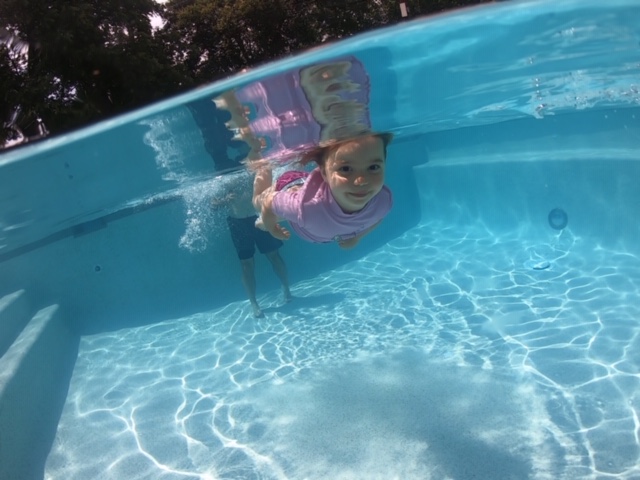What Will My Child Learn?
-

6-12 Months Old
Lessons for a 6-12 month old focus on teaching the child to roll onto their back to float, rest and breathe, and to be able to maintain this life-saving position until help arrives.
-
13 months-6 Years Old
Lessons for children 1-6 years old focus on teaching the swim-float-swim survival sequence. Children learn to swim with their head down; roll onto their back to float, rest, and breathe; and roll back over to resume swimming until they reach the side of the pool, where they can either crawl out or until they can be rescued.
Statistics indicate that 86% of children who fall into water are fully clothed. Therefore, once the children are fully skilled they will practice their ISR skills fully clothed.
-
Refreshers
Refresher lessons are extremely important in continuing and maintaining your child's ISR Self-Rescue™ skill development. Children grow and develop rapidly from infants to toddlers and young children. This development process represents improved strength, coordination, and a more finely tuned cognitive ability. In accordance with this growth, children enrolled in ISR return periodically to participate in Refresher Lessons.
About Lessons
Class Structure:
Your child’s classes are 5 days a week, Monday – Friday. Each class will be approximately 10 minutes long with just one child and the instructor in the water. Much is accomplished in a short but very intense private lesson. Your child will have the same 10 - minute time slot each day. You can expect your child to complete the initial course in 4 – 6 weeks. Each lesson is individualized and custom tailored for your child's needs and abilities.
Please see Infant Swimming Resource Website for more detailed videos on lessons.
This video is a great demonstration of how lessons are taught, how parents feel about lessons and explains crying and how crying in lessons is not a bad thing.
We often hear … when will my child learn to swim. When your child is performing their swim/float/swim skills, they are swimming. Swimming is defined as movement in the water. Stroke lessons, as I have found parents are really asking about, are taught once the child is strong enough. Basic strokes can be taught usually at the age of 5, depending on the child. I can teach basic strokes to your child.
Some parents ask … will my child learn to have fun, yes! Once they are skilled and have confidence in their skills, they have fun. Most children cry at the beginning of lessons because they have never performed skills in the water and don’t understand what we are trying to teach them. Infants cry and may continue to cry if they are learning rollback to float. If your child falls in the water unattended, you would want to hear them, so crying for them is important. A crying baby is a breathing baby!



